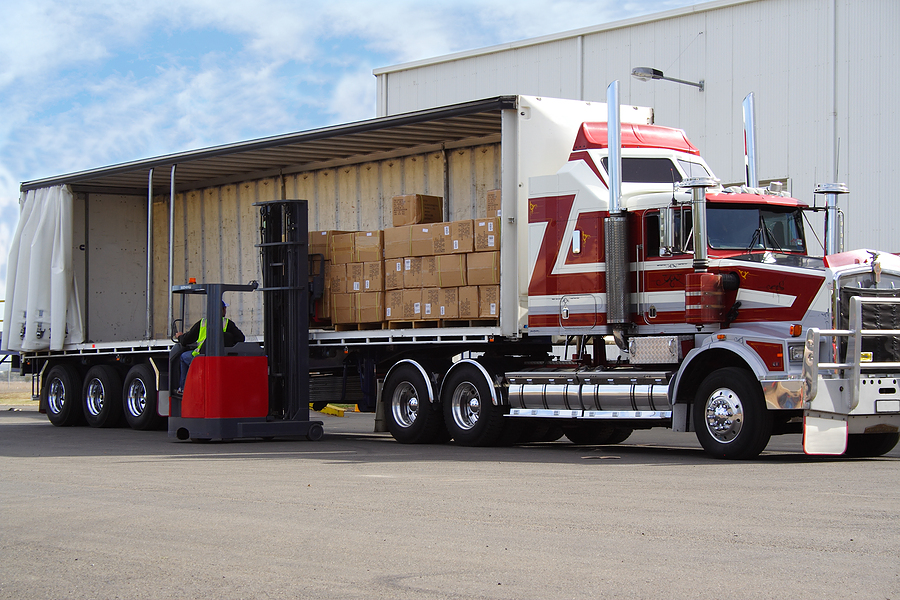Tariffs, enhanced technology to defeat law enforcement along with profitability of criminal enterprises, and geopolitical circumstances have led to an increased threat to the global supply chain, according to the National Insurance Crime Bureau (NICB).
Within the past 18 months, NICB has assisted in more than 240 cargo crime investigations, leading to 70 recoveries valued at nearly $40 million.
Since 2022, the organization has opened an average of 150 commercial cargo crime cases per year.
Agents coordinate with local, state and federal law enforcement agencies, as well as NICB member insurance companies, to aid in investigations of organized crime involved in cargo theft.
“Weaknesses in common-use business technologies like voice over internet protocol (VoIP) and GPS, coupled with business email compromises, identity theft, and synthetic identities enable sophisticated criminals to reroute high-value consumer goods such as electronics, medicine, and clothing from their intended destination to the black market,” said NICB President and CEO David J. Glawe. “Bad actors leverage these vulnerabilities, along with economic uncertainty created by ongoing tariff negotiations, for their own profit.”
The value of stolen merchandise and estimated loss rose to more than $1 billion in 2023.
Last year, cargo crimes increased to an all-time high, up 27 percent from 2023, according to CargoNet.
Annual cargo theft losses are expected to rise another 22 percent from already historic levels by the end of 2025.
The estimated average value of an individual theft is more than $202,000.
Criminals exploit cargo delivery through identity theft, fraudulent pickups, posing as fictitious carriers and cyber-enabled logistics manipulation.
“When manufacturers are forced to account for stolen merchandise, the costs are passed along to the consumer,” Glawe said. “An accurate picture of cargo crime is a challenge. We are calling on the transportation industry, insurance carriers and law enforcement to collaborate by sharing data around these crimes to help spot patterns that can help find criminals and deter this crime.”
Deterrence is the only way to stop cargo theft, the non-profit said.
The NICB recommends the following precautions for any entity engaged in the supply chain:
- Screen every employee. Conduct a background check on every employee, including those with access to the shipping information.
- Train employees on the signs of cargo theft. Provide security training to all employees and educate truck drivers in hijack awareness and prevention, as well as how to respond and report theft.
- Check transportation partners before hiring. They should share your security philosophy, such as conducting background checks and employee training. Use freight brokers and transporters who do not permit double brokering. Ensure that only you, as the shipper, can make re-routing decisions and not the broker, transporter, or dispatcher. Ensure the change order can only originate from the owner of the cargo. Be cautious and scrutinize emails to ensure they are legitimate and not altered. Scrutinize and ensure phone numbers used by individuals within the supply chain are valid, and if determined to be Voice Over Internet Protocol, take additional vetting procedures.
- Implement in-transit security measures. Cargo theft can be pre-planned or opportunistic and may include an inside informant who follows the goods, ultimately leading criminals to the cargo. Thieves will often wait outside known shipping facilities, waiting for drivers to stop. Best practice is to not stop within the first 200 miles, park in known secure locations, and avoid “hot spots” – areas known for increased frequency of cargo crime.
- Keep a vigilant eye. Trucks and cargo are most vulnerable when sitting idle. Include countersurveillance – observance and 360-degree visibility to your property and surroundings – in the duties of your security guards.
- Take advantage of technology. Utilize layers of security: ensure the perimeter, entrances, building doors, and windows are well lit. Install alarm surveillance systems, vehicle and cargo tracking, immobilizers, and advanced security seals.
- Conduct audits. Regularly scan for gaps in shipment protection and stay abreast of how technology enables theft throughout the supply chain.
NICB develops proprietary threat assessments based on its data as well as data from law enforcement, industry intelligence, CargoNet, FBI and Overhaul.
Was this article valuable?
Here are more articles you may enjoy.



 Florida Regulators Crack the Whip on Auto Warranty Firm, Fake Certificates of Insurance
Florida Regulators Crack the Whip on Auto Warranty Firm, Fake Certificates of Insurance  Insurify Starts App With ChatGPT to Allow Consumers to Shop for Insurance
Insurify Starts App With ChatGPT to Allow Consumers to Shop for Insurance  AI Claim Assistant Now Taking Auto Damage Claims Calls at Travelers
AI Claim Assistant Now Taking Auto Damage Claims Calls at Travelers  Judge Tosses Buffalo Wild Wings Lawsuit That Has ‘No Meat on Its Bones’
Judge Tosses Buffalo Wild Wings Lawsuit That Has ‘No Meat on Its Bones’ 

